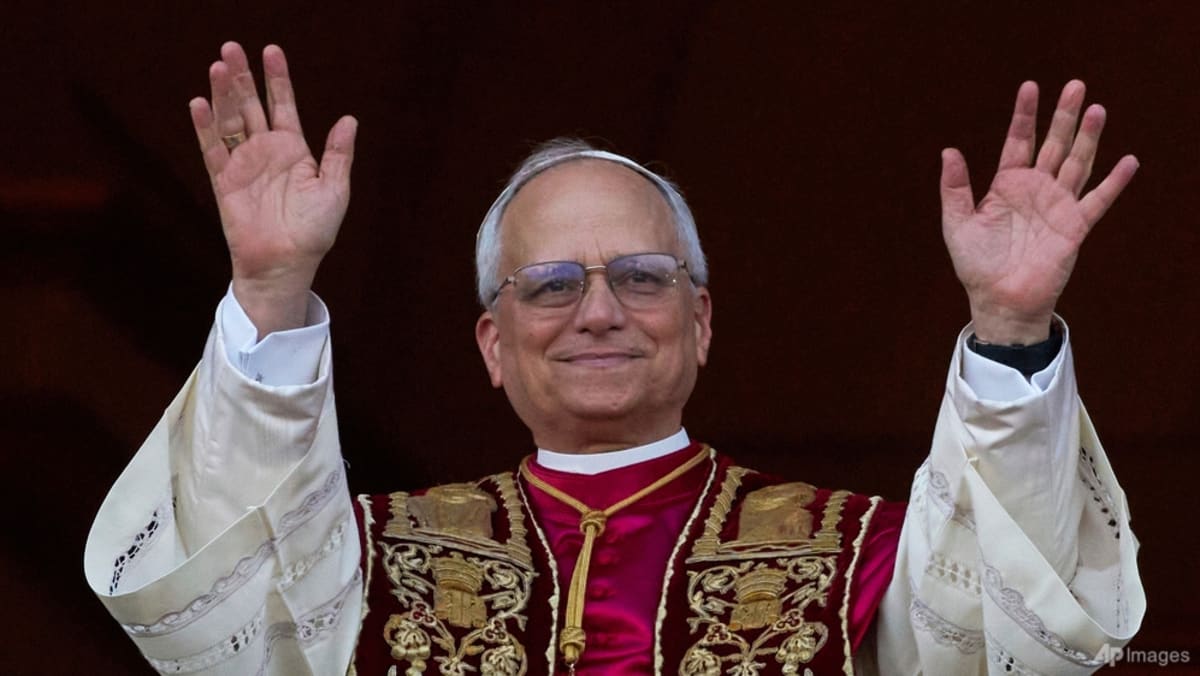THE SIGNIFICANCE OF HIS PAPAL NAME
What’s in a name? In the case of a papal name, a lot.
Once elected, the name that a chosen pope takes is often seen as a sign of their focus and direction for their papacy.
It can signal continuity or a break with the past, and suggest whether the new leader of the Catholic Church is progressive or traditionalist.
The previous Pope Leo – Leo XIII, who was pope at the end of the 19th century – was a determined defender of the rights of workers.
He laid the foundation for modern Catholic social thought, addressing workers’ rights and capitalism at the dawn of the industrial age. He also criticised both laissez-faire capitalism and state-centric socialism.
In taking the name Leo XIV, the new pontiff is indicating his deep commitment to social issues, according to Natalia Imperatori-Lee, the chair of religious studies at Manhattan University.
“He is continuing a lot of Francis’ ministry.”
WILL HE CARRY ON POPE FRANCIS’ WORK?
While Pope Leo XIV’s views on many issues are little known, he was one of the many cardinals appointed by his predecessor, Pope Francis.
About 80 per cent of the electors who participated in the conclave were appointed by the late pontiff.
During Pope Francis’ 12-year papacy, he sought to forge a more compassionate church, while also provoking anger from conservatives with his progressive approach.
Rev Mark Francis, a friend of Prevost since the 1970s, told Reuters the cardinal was a firm supporter of his predecessor’s papacy, and especially of the late pontiff’s commitment to social justice issues.
“He was always friendly and warm and remained a voice of common sense and practical concerns for the Church’s outreach to the poor,” said Rev Francis, who attended seminary with Prevost and later knew him when they both lived in Rome in the 2000s.
“He has a wry sense of humour, but was not someone who sought the limelight,” he added.
